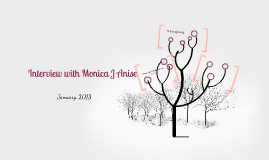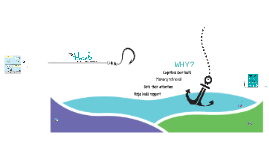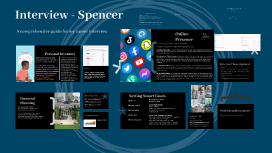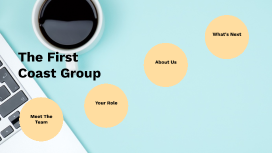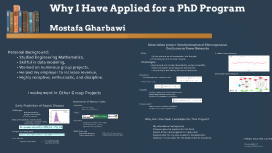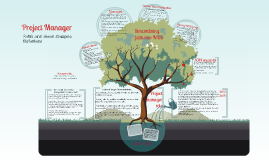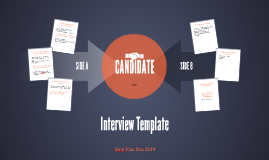Interview Template
Transcript: Why I am Most Deserving of 100% I am the most well balanced student Backup Plan I am the most deserving student to receive a 100% grade because of my exceptional balance and active participation in various aspects of life. My commitment to academics, hobbies such as puzzles and playing the flute, and participation in competitive baseball, including regular travel to the US for tournaments, reflects my dedication to excellence and a well-rounded approach to life. Mr. Forsyth, you consistently talk about a proper work life balance, and I do this better then any other student. I: Play Baseball for Barrie Elite, and get asked to go down to USA tourneys to help teams Am apart of Gifted an Enriched program at my high school Have a job where I practice teamwork Play the Flute Volunteer with the elderly at a retirement home serving food Volunteer with young children at baseball camps/clinics and lead them in activities Interview - Spencer Pathway #1 (Ideal Outcome): Program: Kinesiology School: University of British Columbia (UBC) Reasoning: UBC offers a renowned Kinesiology program with cutting-edge research facilities and a strong focus on exercise science, making it an ideal choice for pursuing a career in fitness and exercise. Prerequisites: High school biology, chemistry, and math courses, along with additional science electives. Relevant current courses: Biology, Chemistry, Math, Physical Education Relevant projected courses: Advanced Biology, Advanced Chemistry, Exercise Physiology, Anatomy and Physiology Link to info: kin.educ.ubc.ca Potential Cost: Tuition and living expenses at UBC can range from $25,000 to $40,000 per year, depending on residency status and program fees. Scholarships and financial aid options are available but may not cover the full cost. Notes: UBC's Kinesiology program aligns perfectly with my career goals in fitness and exercise. While attending UBC may come with a significant financial investment, the quality of education and opportunities for research and practical experience make it worth pursuing. Program: Fitness and Health Promotion School: Community College (e.g., Algonquin College) Reasoning: Community colleges offer practical, hands-on training in fitness and health promotion, providing a direct pathway to entry-level positions in the field. Prerequisites: High school diploma or equivalent Relevant current courses: Physical Education, Biology Relevant projected courses: Exercise Prescription, Nutrition for Fitness and Health, Personal Training Certification Preparation Link to info: https://www.algonquincollege.com/wellness-safety-community/program/fitness-and-health-promotion/ Potential Cost: Tuition and fees at community colleges are generally more affordable than universities, ranging from $3,000 to $6,000 per year for domestic students. Financial aid options and part-time work opportunities can help cover expenses. Notes: While pursuing a diploma at a community college may not offer the same depth of theoretical knowledge as a university degree, it provides practical training and certifications necessary for entry-level positions in the fitness industry. This pathway offers a more affordable alternative for gaining relevant skills and experience. Realistic Outcome Program: Human Kinetics School: University of Ottawa Reasoning: The University of Ottawa offers a reputable Human Kinetics program with a strong focus on exercise science and practical experience, making it a realistic choice for pursuing a career in fitness and exercise within Canada. Prerequisites: High school biology, chemistry, and math courses, along with additional science electives. Relevant current courses: Biology, Chemistry, Math, Physical Education Relevant projected courses: Exercise Physiology, Biomechanics, Motor Learning and Control, Health Promotion Potential Cost: Tuition and living expenses at the University of Ottawa for domestic students range from $7,000 to $15,000 per year, depending on the program and residency status. Financial aid and scholarships are available to help offset costs. Notes: The University of Ottawa's Human Kinetics program provides a solid foundation in exercise science and practical skills needed for a career in fitness and exercise. While it may not offer the same level of prestige as other institutions, its affordability and strong curriculum make it a practical choice. A comprehensive guide for my career interview T - True H - Hurtful I - Intentional N - Necessary K - Kind Online Presence Personal Inventory Why Are These Optimal Differenent personalities value different things, but 8 aspects I value most are: Curiosity and Creativity Flexibility and Adaptability Debating and Argumentation Independence and Autonomy Optimism and Enthusiasm Intellectual Stimulation Unconventionality Freedom of Expression Career Paths Twitter/X: https://twitter.com/SpencerM_2008 Instagram: https://www.instagram.com/spencerm_2008/ a) Social Media Fails: I ensure that my posts on social






